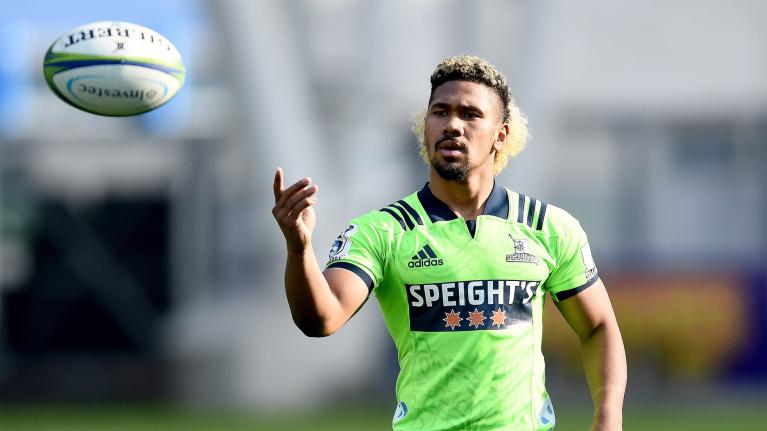New eligibility laws could prevent Folau Fakatava from playing for the All Blacks upon return from injury

Folau Fakatava's ACL injury suffered in the Highlanders' loss to the Chiefs was a blow to the in-form halfback, but it could have far-reaching consequences due to an impending World Rugby law change.
Under the current laws, a foreign-born player must complete three years of residency before they're eligible for international selection.
That law was set to change in May of last year, with the residency period increased to five years for anyone who hadn't yet earned national selection.
The change was delayed, however, due to the impact of the global pandemic, with many nations not able to take to the field at all in 2020.
The likes of South Africa, Japan and the Pacific Islands played no test matches last season, which naturally also prevented them from blooding new players.
The change could potentially be delayed another year, given the continued disruption caused by the ongoing pandemic, but until World Rugby confirms otherwise, the residency period is currently planned to be extended from 31 December.
That means that any players who currently qualify for a newly adopted country under the three-year rule must earn their test debuts this year, otherwise they'll have to wait until 2023 at the very earliest.
Fakatava, the 21-year-old who many see as the obvious successor to Aaron Smith, is one such player.
Fakatava migrated to New Zealand from Tonga on a scholarship with Hastings Boys' High School in 2016. While he's now lived in NZ for almost five years, his residency period under World Rugby (WR) guidelines didn't kick off until he turned 18 - at the end of 2017.
Residency for the purposes of international eligibility is not based on any country's specific legal definitions of residency. Rather, it's defined as “the place or location in which the Player has his primary and permanent home”.
Further, "in the majority of cases involving students, the parental home is likely to continue to constitute the student’s permanent and primary home".
As such, Tonga would likely be considered Fakatava's default country of residency while he was living in Hawke's Bay and being schooled at Hastings Boys' - until he turned 18, when it would switch to New Zealand.
That means that if Fakatava is not capped by New Zealand this year, he won't be eligible for NZ in 2022 as he won't have completed the mandatory five years of residency.
It's a unique situation and one which New Zealand Rugby will likely seek clarity on as the test season approaches. There's some flexibility implied in the regulations but whether that will apply to Fakatava's case is anyone's guess.
Normally, the changing laws wouldn't pose a major problem, but Faktava's injury complicates the situation.
If a fit Fakatava weren't quite ready for the big leagues, Foster could simply call the halfback into his squad and hand him some minutes of the bench in a match where the result was already well and truly wrapped up.
Fakatava's torn ACL, however, means he won't be ready to take the field again for at least nine months - ruling him out of contention for earning a test debut this year.
It's a challenging situation and it likely won't be the only one of its kind we hear about in the coming months thanks to the ongoing uncertainty caused by the global pandemic.
Latest Comments
I love this guy, so pleased he’s staying with the Canes
Go to commentsPerfect.
Now bring back Mo’unga in July 2026.
Go to comments